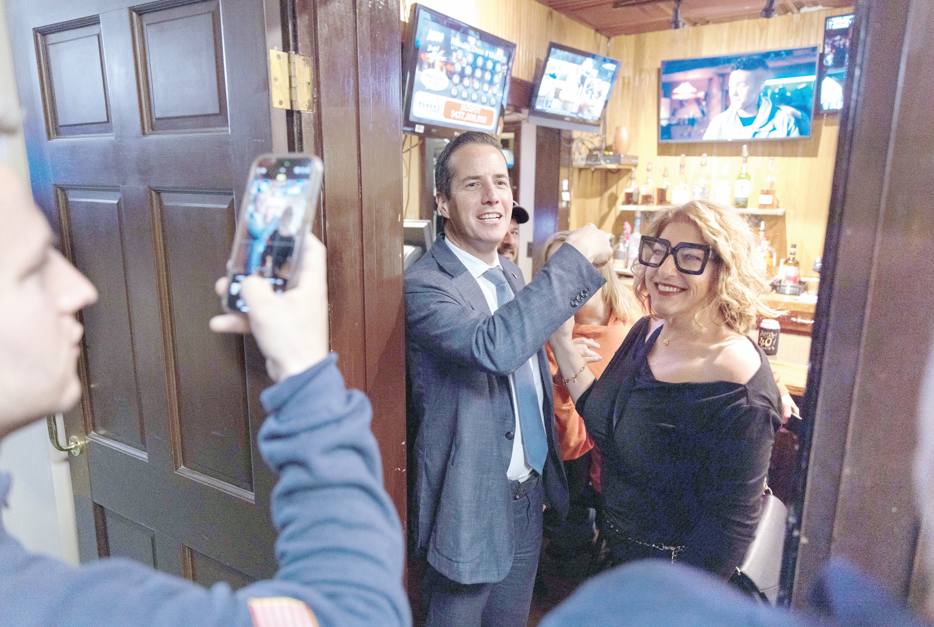Crypto sector $130m spent on USA election paid off

Locked in a tight race for the U.S. Senate in Ohio, Republican candidate Bernie Moreno got a major boost in the weeks before the election: $40 million from the cryptocurrency industry.
The money, which funded ads that aired across Ohio, was the most ambitious effort in an audacious multistate campaign by crypto firms to influence dozens of crucial congressional races.
On Tuesday, that push was rewarded as Moreno, a longtime crypto enthusiast, defeated Sen. Sherrod Brown, a Democrat who chairs the influential Senate Banking Committee and has called for strict oversight of crypto companies.
“The crypto army is striking,” Tyler Winklevoss, a crypto executive, cheered on social media. A spokesperson for the leading crypto super political action committee blasted out the Ohio results in an email with the subject line: “Crypto’s big bet pays off.”
The crypto industry treated this year’s election as a pivotal moment, spending tens of millions of dollars to support candidates who favored softer regulations for the sector.
A super PAC called Fairshake and two related organizations, Protect Progress and Defend American Jobs, spent a total of about $135 million, financed by donations from the crypto companies Coinbase and Ripple and the venture capital firm Andreessen Horowitz, which has backed more than 100 crypto startups.
The effort amounted to one of the most aggressive corporate spending sprees in modern political history, experts said. And it appears to have paid off handsomely.
A tracker run by Stand With Crypto, an industry group that vets politicians, said that 253 pro-crypto candidates had been elected to the House of Representatives on Tuesday, compared with 115 anti-crypto candidates. In the Senate, 16 pro-crypto candidates and 12 anti-crypto candidates were elected, the tracker said.
Fairshake and its related organizations poured money into more than 50 congressional races that were decided Tuesday. In addition to Moreno, pro-crypto congressional candidates backed by the PACs won elections in Arizona, Indiana, Maryland, Missouri and other states. As results trickled in Tuesday night, the price of Bitcoin surged to a record of more than $75,000.
“The most important message from last night is that crypto wins,” said Paul Grewal, chief legal officer for Coinbase. “We now have the most pro-crypto Congress in history.”
None of the crypto PACs contributed to a presidential candidate. But their spending turned a niche set of issues into a major talking point in the campaign, elevating an industry with a long track record of fraud, scams and consumer harm.
The Biden administration spent years pursuing crypto companies for violations of securities law. President-elect Donald Trump has vowed to end that crackdown and make the United States “the crypto capital of the planet.” Once an outspoken crypto skeptic, he appeared at a Bitcoin conference in Nashville, Tennessee, this summer and even started his own crypto business.
The arrival of new pro-crypto voices in Congress could offer the industry a path to pass legislation that would defang the Securities and Exchange Commission, the federal agency that has most aggressively pursued crypto companies in court. Even lawmakers who were not on the ballot this year might be less willing to oppose the industry’s interests after it showed its fundraising muscle.
The spending has alarmed groups that fight the influence of money in politics. In a report this summer, the nonprofit consumer group Public Citizen said that the crypto industry’s outlay was “corrupting our political process.”
“Crypto has become this huge issue in the 2024 elections, solely because crypto corporations have spent a ton of money,” said Rick Claypool, a research director for Public Citizen. “Other sectors are going to try to duplicate this strategy.”












